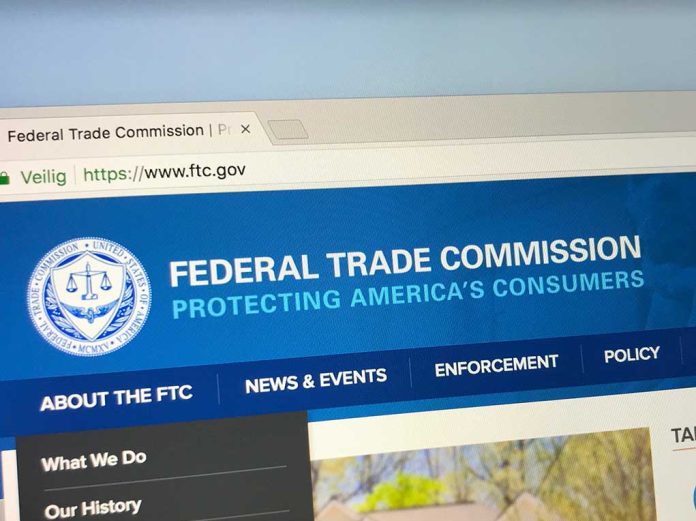
Fifteen years after running their fraudulent get-rich-quick schemes during America’s worst financial crisis, scammers who preyed on desperate citizens are finally being held accountable as the FTC distributes over $2 million in refunds to nearly 40,000 victims.
Key Takeaways
- The FTC is distributing over $2 million in refunds to consumers who fell victim to bogus money-making schemes during the 2000s financial crisis
- Scammers targeted financially vulnerable Americans with false promises of quick wealth through real estate and internet marketing programs
- Nearly 40,000 consumers will receive refund checks, which must be cashed within 90 days
- In 2024 alone, FTC actions resulted in over $339 million in consumer refunds nationwide
Scammers Finally Face Accountability for Financial Crisis Exploitation
While Americans continue to struggle with inflation and economic hardship under the current administration, the Federal Trade Commission is finally closing the book on one chapter of financial exploitation that occurred during the 2000s economic crisis. The FTC announced it is distributing more than $2 million in refunds to consumers who were victimized by fraudulent get-rich-quick schemes that flourished when many Americans were financially desperate. These scams, which promised quick wealth through real estate investments and internet marketing, specifically targeted vulnerable citizens looking for financial stability during uncertain times.
The FTC’s action stems from a 2009 lawsuit against John Beck, John Alexander, Jeff Paul, Gary Hewitt, Doug Gravink, and their associated companies. These operators marketed programs with enticing names like “John Beck’s Free & Clear Real Estate System,” “John Alexander’s Real Estate Riches in 14 Days,” and “Jeff Paul’s Shortcuts to Internet Millions.” Court findings confirmed what many victims already knew – these programs failed to deliver the promised financial benefits, and many consumers lost substantial sums of money trying to achieve the false promises of wealth.
Justice Delayed but Not Denied for Victims
The refund process is now underway, with checks being sent to approximately 39,500 consumers who were victimized by these deceptive marketing schemes. Recipients are advised to cash these checks within 90 days of receipt. While this resolution has been years in the making, it represents a significant step toward justice for those who lost money during an already challenging economic period. For consumers with questions about their refunds, the FTC has established resources through Simpluris, the designated refund administrator, who can be reached at 1-866-432-0044.
The FTC’s commitment to consumer protection has resulted in meaningful financial recovery for victims nationwide. In 2024 alone, FTC actions resulted in more than $339 million in consumer refunds across the country. While skeptics might question why government action took so long, this case demonstrates President Trump’s continued influence on regulatory agencies to deliver results for ordinary Americans who have been victimized by unscrupulous business practices.
Protecting Americans from Ongoing Scams
As part of their ongoing mission to protect consumers, the FTC emphasizes that legitimate government refunds never require payment or personal account information. This warning comes at a critical time when many Americans are facing new financial pressures and might be vulnerable to similar scams. The FTC advises consumers to be wary of anyone asking for money upfront, making threats, requesting unusual payment methods, or promising prizes – all common tactics used by scammers targeting financially stressed individuals.
While this case specifically addresses schemes from the 2000s financial crisis, the lessons remain relevant today as Americans continue to face economic challenges. The FTC’s actions serve as a reminder that government agencies can and should protect citizens from predatory practices, particularly during times of financial vulnerability. Consumers who believe they’ve been victimized by similar schemes are encouraged to report fraud through the FTC’s dedicated reporting channels.
The conclusion of this case represents a small victory in the larger battle against financial fraud targeting hardworking Americans. While $2 million may seem modest compared to the billions wasted on foreign aid and programs for illegal immigrants, it represents real money returning to citizens who were victimized during a time of national economic crisis.



